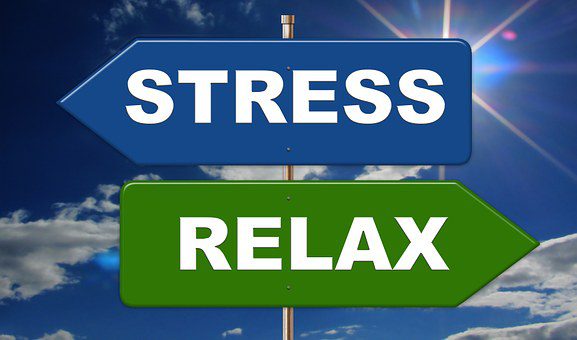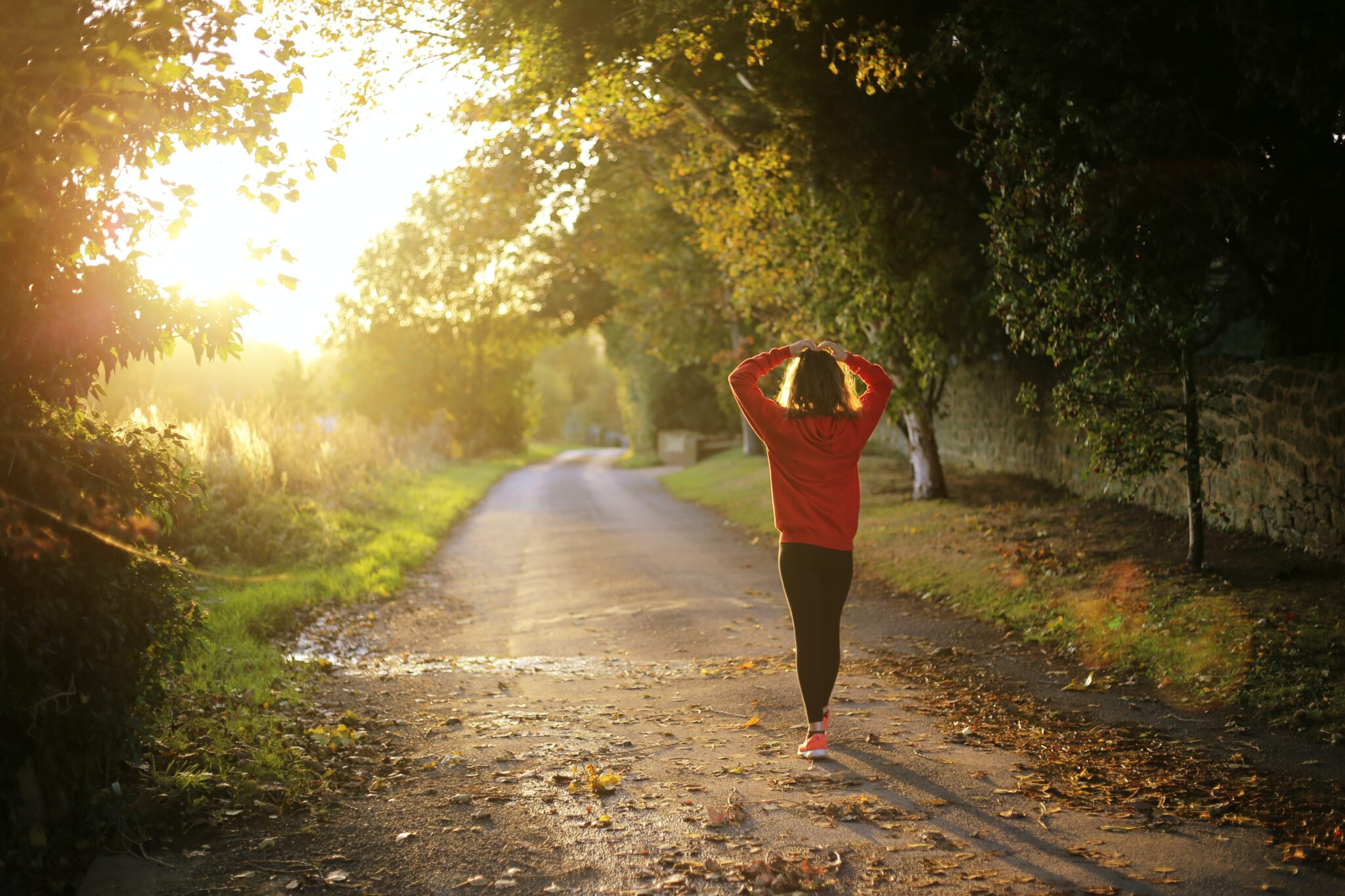STRESSED OUT? TAKE A BREAK, NATURALLY
Written by Susanne Heaton, Motivated by Nature
Stress is a part of our everyday lives.

Some stress is good: eustress is what we experience when we are excited or anticipating a good outcome. The other two types of stress are acute and chronic.
Acute stress is a short-lived stressor. Once the danger has passed, the stress generally dissipates. Acute stress can be experienced anywhere from public speaking to being fearful for your life. When severe, the stress response lingers.
Chronic stress is a long-lasting stress experience. This could be linked to examples like an illness, a relationship issue or other situations that feel out of our control. Since there is no recovery time, we begin to experience negative side effects to our physical and mental health, such as: anxiety, depression, irritability, fatigue, burnout, weakened immune system, poor digestion, heart issues and brain fog.
Our brain health and overall well-being also suffers stress from too much technology.

The use of technology and multimedia has been shown to disrupt the area of our brain that has introspective thinking and causes brain fog. In 2019, a study by Alcon stated the average Canadian adult spends nearly 11 hours per day on a screen. A Canadian Mental Health Association (CMHA) study in May 2021 found that screen time had increased by 57%. This is not surprising, with all the video calls occurring for work as well as to keep connected with family and friends.
On top of this, there is also something called “email apnea” or “screen apnea”. Have you heard of it? It is when we start to breathe shallowly or even hold our breath when doing computer work. This triggers the fight or flight stress response in our brains.
Also in May 2021, CMHA produced a report stating that 77% of Canadian adults reported feeling “worried or anxious, bored, stressed, lonely or isolated and sad”. Excessive stress can rewire the brain, leaving one more vulnerable to anxiety, depression and other mental health problems.
“Mental health is something we can protect, not just something we can lose,” states Margaret Eaton, National CEO of CMHA.
But what steps can we take to protect our mental health and decrease our stress levels, naturally?
There are three scientifically-backed ways to decrease our stress levels naturally and improve our overall well-being… for FREE!
- Breathing Techniques
- Nature Exposure
- Quality Sleep
Breathing techniques to decrease stress

When we start to breathe deeper, we help to tap into the parasympathetic system (the rest and digest response). There are many different techniques to help us breathe deeper; here are a few examples.
- Inhale shorter than exhale: breathe in through your nose for a count of two and hold, then breathe out through your mouth for a count of five. As you breathe out, think of letting go of what no longer serves you. Any time your exhale is longer than your inhale, you are slowing down your heart rate.
- Diaphragmatic breathing: place your hands on your diaphragm, just below your belly button. Pretend there is a big balloon in your stomach that you are breathing into, and feel your stomach expand as you breathe in and contract as you exhale all the air.
- Box breathing: breathe in for four seconds, hold for four seconds, breathe out for four seconds, hold for four seconds. You can draw a box in the air as you breathe if you’d like.
- Double inhale followed by extended exhale: breathe in twice, then exhale out all the air. Dr. Andrew Huberman, PhD, says that this is the quickest way to calm down our nervous systems.
Nature to increase our well-being

Our brains are incredible processors; but, they do get fatigued. Fatigue results in loss of performance and creative ideas, as well as more mistakes.
David Strayer, a cognitive psychologist at the University of Utah, states that the prefrontal cortex (the part of the brain that dictates how we act and make decisions), needs to take a break and relax, just like an overworked muscle.
His research found that cognitive skills do improve with prolonged exposure to the outdoors. In fact, being in nature activates the same area of the brain that is engaged when we daydream or have introspective thoughts.
Benefits of nature exposure include:
- Decreased depression and anxiety. A well-known research study at Duke University showed that going for a brisk 30-minute walk three times per week is as effective as taking antidepressants to improve your mood.
- Calming effect. When walking, biking or running out in nature past something that is standing still, it helps to quiet some of the circuits in our brains responsible for stress. This is called Optic Flow.
- Boosted creativity and productivity. Getting outside anywhere from 5-15 minutes helps us to be more creative and innovative, according to a study by Stanford University.
- Increased happiness. The Mappiness Project by the London School of Economics created an app that asked users to answer some questions at random points in the day about what they were doing and how happy they were. They found that happiness is greater in outdoor green or natural habitats rather than urban settings.
- Increased immunity. There are chemicals given off by trees and plants called phytoncides, which are similar to natural essential oils. When we go for walks out in nature, we inhale these phytoncides, which help to boost our immune systems. So, not only are we receiving the benefit of exercise, but we are also boosting our immune system at the same time. Since stress affects our immunity, getting outdoors and breathing in these phytoncides is a great remedy.
- Increased attention span. In Richard Louv’s book, Last Child Left in the Woods, he talks about a young boy whose parents realized that their hyperactive son seemed to calm down when they took him outdoors to be in nature. So, they let nature become his teacher and took him to forests, oceans, rivers and streams. This young boy grew up to be Ansel Adams, world-renowned photographer and environmentalist.
- Decreased risk of various diseases. Increasing nature time reduces one’s risk of developing heart disease, high blood pressure and diabetes. In fact, PaRx, a Prescription for Nature launched in 2020, is Canada’s first national, evidence-based nature prescription program. Canadian Parks and Recreation Association have partnered with PaRx to offer FREE National Parks passes to those with nature prescriptions from their doctor.
A report by Ipsos and the Nature Conservancy in February 2021 found that Canadians value nature more now than ever. Over 85% have stated that access to nature was important in maintaining their mental health during the pandemic.
When you cannot physically get out in nature, there are still things you can do to help naturally decrease your stress levels:
- Look at trees out of your work or home office. A range of research indicates that just looking at trees improves your mental well-being.
- Bring the outdoors in. Have a photo of your favourite place in nature beside your desk. A study by Environmental Science and Technology found that people who looked at pictures of nature decreased their stress levels more than those who looked at man-made pictures.
- Bring plants into your office space. Indoor plants not only purify the air; they also have calming effects on your mood, stress levels and blood pressure.
Getting quality sleep

Good quality sleep is a natural stress reducer. A good sleep can calm and restore the body, improve concentration, regulate mood and sharpen decision making skills.
Try these tips for a better quality sleep:
- Get outdoors prior to 11 a.m.. Getting outdoors and exposing ourselves to sunlight helps to reset our circadian rhythm and restore a more natural sleeping pattern.
- Limit exposure to the blue light of screens. At night, we need to limit our exposure to computer, television and phone screens about one hour before going to bed. This artificial light signals to our brain that we should stay awake. A great tip for computer users is to use f.lux to help dim the screen and receive a pop-up letting you know how soon you’ll be waking up. It is a great prompt to get to bed.
- Create a nightly routine. Watch the sunset or take a warm bath/shower by candlelight, which also helps to reset our circadian rhythm. Try not to eat anything just prior to going to bed.
Here is to you focusing on deep breathing, getting your daily dose of Vitamin “N” – Nature, and getting quality sleep. Take a Break, Naturally!
Would you like Susanne to speak at your next event? Visit: https://motivatedbynature.com/
Do you need extra help to get off the couch and get your body moving out your front door every day? Sign up for one of the ONLINE Wild About Nature Challenges and reach your goal in a fun and mindful way! Corporate Challenges are also available. Let’s get WILD together! https://learning.motivatedbynature.com/
Susanne Heaton
Motivated by Nature
https://motivatedbynature.com/
Info@motivatedbynature.com



So honoured to have been featured in your blog. Here is to everyone getting their daily dose of Vitamin “N” – Nature. Thank you for all the great work that you do to make a difference.